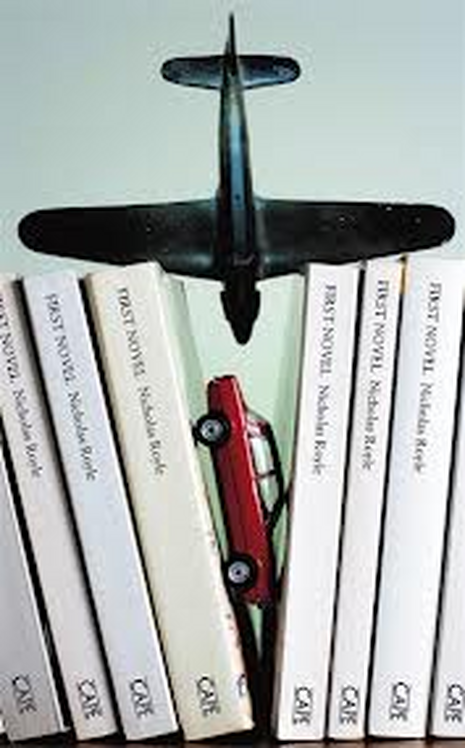Books: Nicholas Royle – First Novel
Josie Bowerman is impressed by the thematic weight of this creative writing novel.

What it is, is many things. It’s the disturbing tale of Paul Taylor, first-novel-obsessed lecturer in creative writing, once-published author and keeper of many more secrets than where to find his own first novel. It’s an intertwined take on the writing process, weaving the tale told by lecturer Paul with the story written by his enigmatic student, Grace. It’s a magic trick, Grace’s apparently fictional narrative developing into real life before you can spot it happening as author Nicholas Royle pulls away the boundaries between truth and fiction, real and imagined. It’s also Royle’s seventh novel.
Despite being a book of such multitude, First Novel is gripping even on its most straightforward reading. In the obsessional yet aloof figure of Paul, Royle has created a protagonist whose unpleasantness makes the book compulsively readable, driven by that need to find out to just why he makes the skin crawl. Even as you follow him on snatched assignations in cars and into dark reminiscences about his former life, it’s impossible to break away. Royle tells you so much, in Paul’s coldly precise detailing of his life, and yet gives nothing away. The tug he creates is irresistible.
Then, just above this tense storyline, is something altogether larger and denser, the themes of loss and powerlessness. They’re there in the lives of the characters, in Paul’s ruthlessly pragmatic take on life. First Novel asks us to confront the idea that we live in a world which offers us so little choice- either or- that in the end it all comes down to only one thing: either we accept it, or we don’t.
From here, Royle goes on to make his most daring leap. These themes become something altogether different, more subtle. From them, Royle fashions a meta-literary commentary on the writing process, on first novels themselves. When a writer produces a piece, they lose a bit of themselves; a handful of ideas, a corner of soul goes into what they write. First novels are the first major loss. Worse, they come with the knowledge that these loses are self-inflicted, an echo of Paul’s predicament. They are a kind of loss which is so bound up in the writers’ decisions that they can no longer distinguish them from Fate. The writer has the potential to be in total control of their narrative, to create their own world. Only they can decide what will happen: either they take the chance, or they don’t. Writing is nothing but an either or. The realisation is a revelation.
That’s why First Novel almost could be. It’s as breath-taking and mind-altering as the most audacious debut. Technically it is skilled; more than skilled- so polished that it reflects the reader back to themselves and makes them think that everything they see in the book is them, their own insight. That’s what gives Royle away. His work is the work of a master, and for that reason, First Novel is anything but.
 News / Caius mourns its tree-mendous loss23 December 2025
News / Caius mourns its tree-mendous loss23 December 2025 News / Cambridge welcomes UK rejoining the Erasmus scheme20 December 2025
News / Cambridge welcomes UK rejoining the Erasmus scheme20 December 2025 News / CUP announces funding scheme for under-represented academics19 December 2025
News / CUP announces funding scheme for under-represented academics19 December 2025 News / King appoints Peterhouse chaplain to Westminster Abbey22 December 2025
News / King appoints Peterhouse chaplain to Westminster Abbey22 December 2025 Interviews / Politics, your own way: Tilly Middlehurst on speaking out21 December 2025
Interviews / Politics, your own way: Tilly Middlehurst on speaking out21 December 2025







